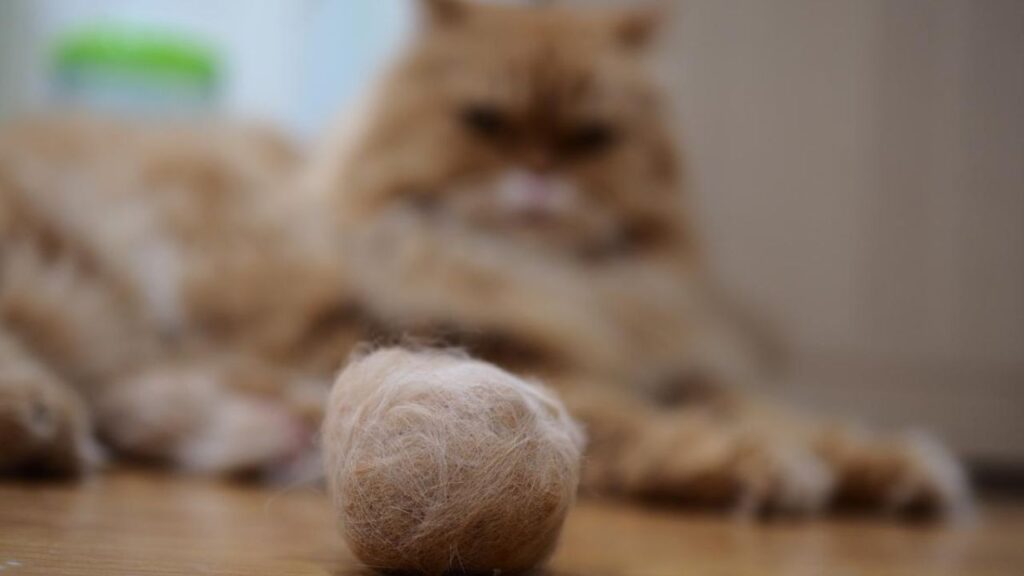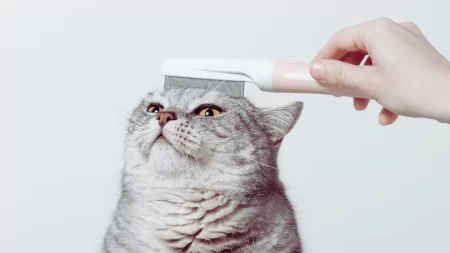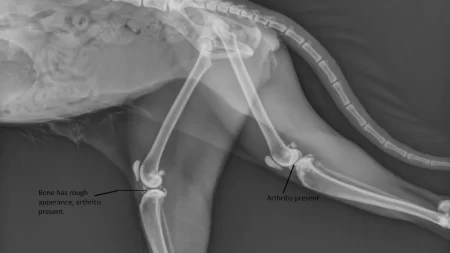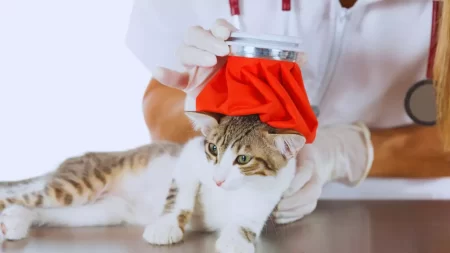Milk is not a good remedy for hairballs, because most cats are lactose intolerant and cannot digest milk properly.
Milk can cause diarrhea, vomiting, or other digestive issues in cats.
Cats may experience gastrointestinal issues such as vomiting and diarrhea if they consume milk or dairy products, which can ultimately worsen their hairball problems.
It’s important to note that milk does not offer the necessary nutrients to prevent hairballs.
What is a Hairball?
Hairballs are common in cats, especially those with long or thick fur. They occur when cats swallow hair while grooming themselves, and then vomit it out later.
Hairballs can be unpleasant for both you and your cat, and sometimes they can cause serious problems if they block the digestive tract.
Other Ways to Prevent Hairballs
Milk is not the answer for hairballs in cats. So, what can you do? Here are some tips:
- Groom your cat to remove extra fur.
- Feed them canned pumpkin or hairball control food for fiber.
- Provide lots of water for hydration.
- Try special cat treats for hairballs.
- Keep the litter box nice and clean for regular pooping.
These tips will help keep your cat healthy and happy – no more hairballs!
Do all cats experience hairballs, or only certain breeds?
Not all cats experience hairballs, but some breeds are more prone to them than others.
Generally, long-haired breeds like Persians, Maine Coons, and Birmans are more likely to have hairballs because they have more fur to groom and swallow.
Short-haired breeds can also have hairballs, but usually less frequently. Cats that shed a lot or over-groom themselves due to stress, pain, or itching may also have more hairballs.
Hairballs are more common in adult cats than kittens, because older cats are better at grooming themselves and removing fur from their coats.
However, hairballs can occur at any age and in any breed of cat.
Can changing a cat’s diet help reduce hairball frequency?
Yes, changing a cat’s diet can help reduce hairball frequency in some cases. There are two main types of diets that can help with hairballs:
Hypoallergenic Diets: These diets feature a unique protein source or hydrolyzed protein to minimize the chance of an allergic reaction.
By reducing inflammation in the digestive system, they can improve hair passage. Additionally, hypoallergenic diets can address skin issues that lead to over-grooming or hair loss.
High-fiber Diets: These are diets that contain more insoluble fiber, which can help sweep hair through the digestive tract and prevent it from accumulating in the stomach.
High-fiber diets can also improve digestion and stool quality.
You can find over-the-counter cat foods that are formulated for hairball control, or you can ask your veterinarian for a prescription diet that suits your cat’s needs.
Can hairballs be prevented by brushing a cat’s fur regularly?
The best way to prevent hairballs is to brush your cat regularly to remove loose hair and reduce the amount they ingest.
You can also use hairball gels or pastes, high-fiber diets, or plenty of water to help the hair pass through the digestive tract more easily.
What is the difference between hairballs and vomiting in cats?
Hairballs and vomiting are not the same things, although they can sometimes look similar.
Hairballs are clumps of undigested hair that are formed in the stomach and expelled through the mouth.
They usually have a cylindrical shape and are moistened by bile and other digestive fluids.
Hairballs are caused by your cat’s normal grooming behavior when they swallow hair that gets caught on their tongue.
Most of this hair passes through the digestive tract without problems, but some of it stays in the stomach and forms a hairball.
Vomiting is the forceful expulsion of stomach contents through the mouth.
Vomiting results from various factors, such as consuming tainted or poisonous materials, enduring inflammation or infection in the digestive system, encountering a foreign object or growth in the gastrointestinal tract, managing metabolic issues like diabetes or kidney failure, or facing stress-linked disorders.
It may present as sudden or persistent bouts and can resemble regurgitation, where undigested food leaves the esophagus.
Do indoor cats experience hairballs more frequently than outdoor cats?
It’s a common misconception that indoor cats are more prone to developing hairballs than outdoor cats.
In fact, whether or not a cat is indoors or outdoors does not influence the frequency of hairballs.
Instead, a cat’s coat length, shedding cycle, and diet are the primary factors that contribute to hairball development.
However, indoor cats are more likely to swallow hair due to their inactive lifestyle and lack of access to roughage that can help remove hair from their digestive system.
Thus, it’s essential to take preventative measures such as regular grooming, providing a healthy diet, and utilizing hairball remedies to minimize the risks associated with hairballs in all cats, regardless of their living environment.







